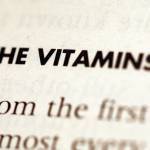What Is the Best Way to Supplement Horses with Vitamin E?

The purpose of this research was to assess the effects of different forms of dietary vitamin E supplementation on vitamin E status.
Nine horses were supplemented for 56 days with 5,000 IU of vitamin E in one of three forms: synthetic vitamin E (dl-alpha-tocopherol acetate), natural-source vitamin E (d-alpha tocopherol acetate), and natural vitamin E (d-alpha-tocopherol) in a micellized water-soluble form. Blood samples were taken prior to supplementation and at weekly intervals during the supplementation period for measurement of plasma tocopherol levels.
After supplementation, plasma tocopherol levels were significantly higher in horses receiving natural-source vitamin E than in those receiving synthetic vitamin E. The highest plasma tocopherol levels were found in horses receiving natural vitamin E in a micellized water-soluble form.
Results of this research indicate that the source of vitamin E significantly affects vitamin E status in exercised and unexercised horses. Synthetic vitamin E (dl-alpha-tocopherol acetate) was less effective at elevating plasma tocopherol levels than natural solurce vitamin E, and a micellized form of vitamin E was superior at elevating plasma tocopherol during short-term administration.
This report of KER’s 2005 research was published in Proceedings of the Australasian Equine Science Symposium.








